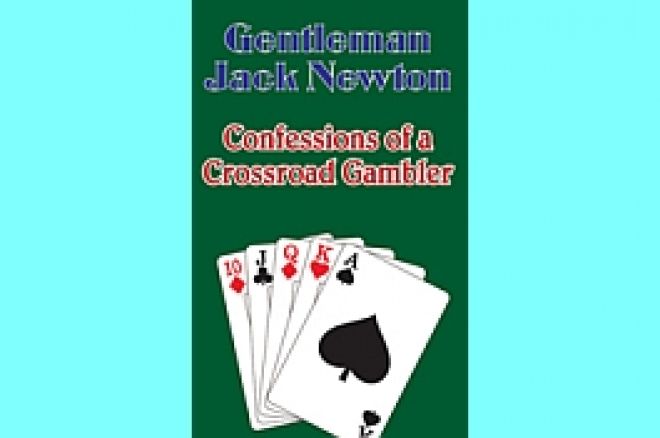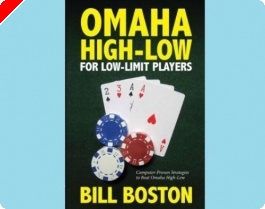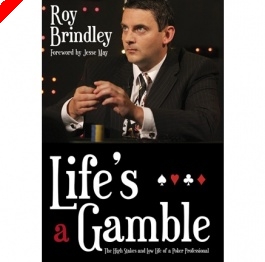Poker Book Review: Jack Newton’s ‘Confessions of a Crossroad Gambler’

As a way of introducing his new autobiography, Confessions of a Crossroad Gambler, “Gentleman” Jack Newton shares a quote from Benny Binion, the legendary owner of Binion’s Horseshoe: “Even a catfish wouldn’t get caught if he kept his mouth shut.” The idea, of course, is that a gambler, confidence man, trickster or hustler who wishes to remain successful better resist the urge to explain what he’s doing. If he wishes to remain successful, that is.
However, after a lengthy career of gambling crossing several decades and multiple continents, the octogenarian Newton has decided it is safe at last to tell his story. The result is an intriguing chronicle of one gambler’s sometimes thrilling, sometimes harrowing quest for a good poker game.
Confessions of a Crossroad Gambler is a loosely organized collection of anecdotes and reflections primarily drawn from Newton’s own colorful experiences as a “crossroad gambler,” a type the author defines as “a gambler who travels from city to city looking for games where he can win.” The book roughly follows a chronological progression, beginning with Newton’s early days as a youngster growing up in Depression-era Arkansas, all of the way through to the late 1970s, with his search carrying him to various points throughout the United States and Mexico, as well as the Caribbean, numerous European countries, and even South Africa.
Newton identifies himself early on as a born gambler, like others of that select group of individuals who “have the gambling instinct in their bones.” Newton discovers this fact about himself at an early age while helping his mother run the family grocery store in North Little Rock. Card games and pitching pennies helped young Jackie pass the time, and from the beginning the games involved wagering. As the stakes of these games gradually began to increase, Newton additionally became aware of the idea of “looking for a way to get an edge,” including happening upon morally dubious methods to ensure successful gambles.
As the word “Confessions” in the book’s title might suggest, cheating becomes something of a theme in Newton’s story, and while some of his purpose seems to be to “confess” those instances in which he himself might have obtained an advantage over his opponents in less than honest ways, Newton is at least as interested in exposing others’ systems, schemes, and angle-shoots as well. Indeed, most of the stories Newton tells about his own adventures as a “crossroader” involve him sniffing out another’s attempt at cheating, then outwitting his deceitful opponent in order to beat him at his own game.
For example, Newton relates multiple stories about his battles with Nick Simpson, or “Shoeshine Nick,” a gambler from California against whom Newton competed on numerous occasions, the first of which took place in 1965. Following an elaborate ruse to set up a private game of five-card stud between the pair, Newton proceeds to clean out Nick despite the latter’s having marked the cards with a “scrape” or small razor blade hidden inside his fingernail. Newton’s counter was to use what he calls “Jack’s Light,” that is, a small mirror glued inside of his right middle finger with which to see cards are they were being dealt. Newton’s frequent knowledge of Nick’s hole card — combined with Nick’s lack of knowledge that Newton had such knowledge — added up to a $40,000 payday for Newton.
Newton’s story moves on through Kansas to Texas to Mexico and eventually to Vegas where Newton spent a stretch working for Binion and learning the ins and outs of the casino business. Newton’s time in Vegas saw him cross paths with several key figures in the history of gambling, about whom Newton includes several stories. One such story purports to shed light on Archie Karas’ nearly-successful attempt to win Binion’s Horseshoe. Another sheds light on the history of the development of card counting systems in blackjack. Newton also shares tales from his various gambling-related adventures in Europe, including one which landed him in a British prison for three years.
Newton sometimes diverts from his own long and winding road to include several side trips, including a few short essay-like “how-to” chapters describing various topics like coin-flip control or card counting, as well as chapters focusing on other memorable gamblers Newton has encountered along the way, such as the enjoyable one relating the various prop bets of the renowned hustler Titanic Thompson.
Newton’s book is not the most polished of narratives, often having the feel of an extemporaneous oral history delivered without a great deal of revision or editing. However, while the haphazard organization and occasional typos might bother some readers, such deficits are easily outweighed by both the high level of intrigue and the historical value of Newton’s story.
One gets the sense that Newton spent much of his life keeping these tales to himself. After all, as Newton explains, for a crossroad gambler “a reputation was good for the ego, but not good for business.” Thankfully for us, he’s decided to retire from that business and share his memories and knowledge, thus providing a notable addition to poker and gambling lore.
Get in on the action with a Full Tilt Poker bonus code at PokerNews.com - The Number 1 Source for Poker Information.








